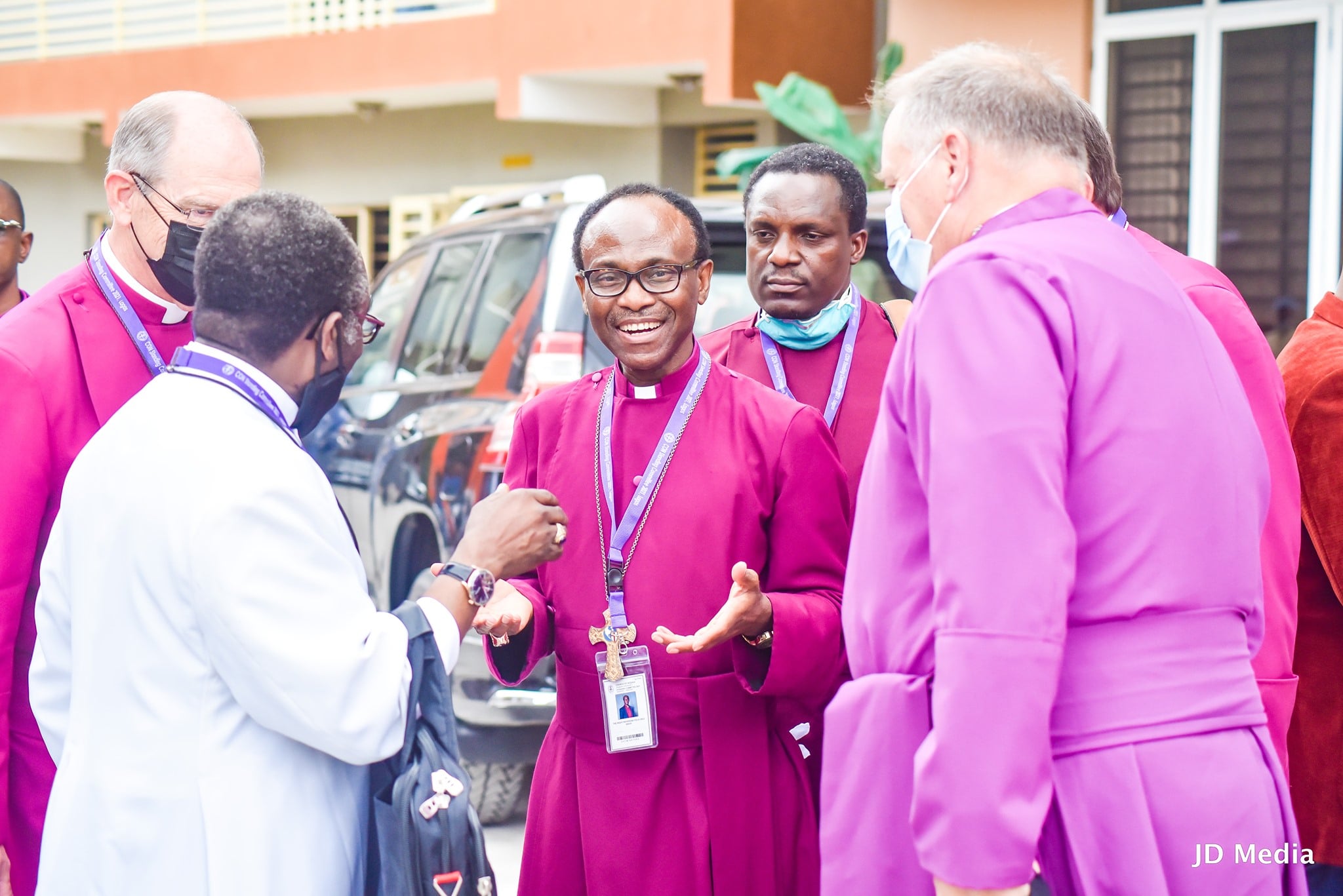Business
Allow States To Manage Their Resources, Cleric Tells FG

The International President, Council of Arch. Bishops and Bishops for Pentecostal and Charismatic Churches, Royal Eminence, Arch Bishop Benny Danson, has called on the Federal Government to allow states to manage their resources for proper economic growth and development.
He has also called on the Federal Government and the National Assembly to rescind the decision to grant amnesty to Boko Haram terrorists in whatever guise, saying the insurgents should be treated as terrorists.
Danson, a United Nations ambassador and Peace Advocate for Conflict and Peace Management in charge of West Africa, disclosed this while speaking to aviation correspondents in Port Harcourt, recently.
He regretted that though Nigeria is a blessed country, corruption and mismanagement of the nation’s resources have been a major challenge and setback to its greatness.
“In my assessment, Nigeria is the richest country in the world, but mismanagement and corruption have set the country backward.
“You can imagine how much that is being looted in this country by the leaders every year, but yet, the country has not collapsed financially, but there are many countries this will happen to, and that will be their end financially.
“Let the Federal Government allow the states to manage their own resources, and pay certain percentage to the Federal Government, as it is done in other developed countries like the United Kingdom.
“That is true federalism, and it will allow states to manage and grow their resources which will create heathy economic competition among federating states”, he said.
The Pentecostal Arch Bishop commended the efforts and moves by the Rivers State governor, Chief NyesomeWike on Value Added Tax (VAT, saying the governor is a man of courage and vision, and enjoined other governors to emulate his boldness.
The clergy also called on all tiers of government to pay their workers well so as to boost their efficiency and productivity, as well as eliminate corruption in the system.
Dansonemphasised the need for the government to take the issue of welfare of workers seriously, especially in the area of free health care for workers.
He also drew the attention of the Federal Government to the empowerment of the military and Police through provision of better and sophisticated equipment to do their job well.
He appealed to the Federal Government to enforce discipline in the civil service, as well as ensure that square pegs are put in square holes when it comes to the issue of appointment.
By: Corlins Walter
Business
Agency Gives Insight Into Its Inspection, Monitoring Operations

Business
BVN Enrolments Rise 6% To 67.8m In 2025 — NIBSS

The Nigeria Inter-Bank Settlement System (NIBSS) has said that Bank Verification Number (BVN) enrolments rose by 6.8 per cent year-on-year to 67.8 million as at December 2025, up from 63.5 million recorded in the corresponding period of 2024.
In a statement published on its website, NIBSS attributed the growth to stronger policy enforcement by the Central Bank of Nigeria (CBN) and the expansion of diaspora enrolment initiatives.
NIBSS noted that the expansion reinforces the BVN system’s central role in Nigeria’s financial inclusion drive and digital identity framework.
Another major driver, the statement said, was the rollout of the Non-Resident Bank Verification Number (NRBVN) initiative, which allows Nigerians in the diaspora to obtain a BVN remotely without physical presence in the country.
A five-year analysis by NIBSS showed consistent growth in BVN enrolments, rising from 51.9 million in 2021 to 56.0 million in 2022, 60.1 million in 2023, 63.5 million in 2024 and 67.8 million by December 2025. The steady increase reflects stronger compliance with biometric identity requirements and improved coverage of the national banking identity system.
However, NIBSS noted that BVN enrolments still lag the total number of active bank accounts, which exceeded 320 million as of March 2025.
The gap, it explained, is largely due to multiple bank accounts linked to single BVNs, as well as customers yet to complete enrolment, despite the progress recorded.
Business
AFAN Unveils Plans To Boost Food Production In 2026
-

 News3 days ago
News3 days ago2026 Budget: FG Allocates N12.78bn For Census, NPC Vehicles
-

 Sports3 days ago
Sports3 days agoAFCON: Osimhen, Lookman Threaten Algeria’s Record
-

 Politics3 days ago
Politics3 days agoWike’s LGAs Tour Violates Electoral Laws — Sara-Igbe
-

 Politics3 days ago
Politics3 days agoRivers Political Crisis: PANDEF Urges Restraint, Mutual Forbearance
-

 Sports3 days ago
Sports3 days agoArsenal must win trophies to leave legacy – Arteta
-

 Sports3 days ago
Sports3 days agoPalace ready To Sell Guehi For Right Price
-

 Sports3 days ago
Sports3 days agoTottenham Captain Criticises Club’s Hierarchy
-

 Maritime3 days ago
Maritime3 days agoMARITIME JOURNALISTS TO HONOUR EX-NIWA MD,OYEBAMIJI OVER MEDIA SUPPORT

